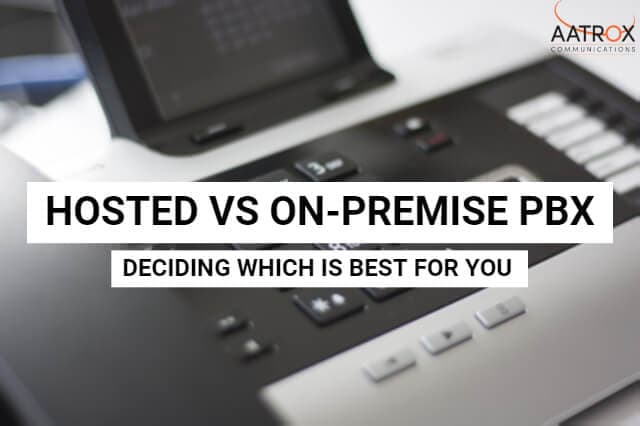When making the move to an IP PBX, each business will have to decide whether they wish to keep their IP PBX on-premise, or have it hosted elsewhere by another company.
Both options have their benefits and drawbacks, and the decision will often come down to the size of the company and the resources available, as well as what is required of the business phone system.
Cloud PBX
Often referred to as a hosted PBX or a virtual PBX, a hosted PBX is a phone system housed and maintained by a third-party provider.
Hosted PBX providers often charge a monthly fee per user which will include maintenance and updates.
Positives
- Easy to add extra lines and expand for more users
- Not required to bring on extra staff to manage the IP PBX
- All updates and maintenance carried out by the provider
- Ensuring the phone system remains working in the event of an emergency or loss of internet
- Greater redundancy at off-site facilities with backup power sources
Negatives
- Flexibility of the features of the phone system may be limited depending on the provider
- Features are often bundled, and it may be difficult to find the exact plan you need
- May be extra fees for certain features
- The cost over time can often end up more than the initial setup cost of an on-premise PBX
On-Premise PBX
An on-premise PBX system is similar to a traditional PBX residing on a company premises in a server room/ computer hardware room.
The main difference being that calls are routed over the IP network instead of traditional phone lines.
It is often found that an on-premise phone system is ideal for large organisations that already have the infrastructure and bandwidth to handle something such as a business phone system.
For smaller companies, or those with less intensive requirements for their phone system – using a Mini PC to create an IP PBX appliance is often a great choice.
Positives
- Greater control over the phone system
- No need to rely on a PBX provider to carry out simple tasks
- Reduces the TCO (total cost of ownership) over time
Negatives
- Initial setup and maintenance costs are higher
- An on-premise PBX requires someone to manage and maintain it
- Expansions may be more complicated and expensive
- Loss of power to the PBX may result in the entire phone system going down, unless also using a SIP provider
There is a lot to take into consideration when deciding whether to use a hosted PBX solution or to manage it internally.
Having a clear understanding of the pros and cons for each method will enable you to find the solution that best aligns with your company needs in the present, as well as keeping you prepared for the future.
For more information on deciding on a business phone system, or how SIP trunking works with these options, get in touch with us today.

